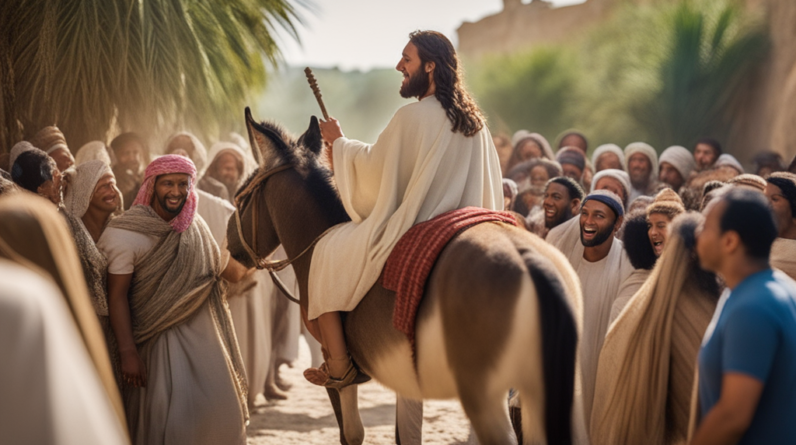Are you looking for a creative way to express your faith and connect with God through music? Look no further! In this article, we will explore the art of crafting worship songs directly from Bible verses. Drawing inspiration from powerful passages like Psalm 150:6, Isaiah 42:10, and 1 Corinthians 14:15, we will delve into the transformative melodies that can arise from harmonizing faith with these sacred words. Get ready to be inspired and deepen your worship experience as we explore the beauty of crafting worship songs from Bible verses.
Why Use Bible Verses in Worship Songs
Worship songs have long played an integral role in religious gatherings, creating an atmosphere of devotion and praise. Incorporating Bible verses into these songs not only strengthens the connection between worshipers and scripture but also enhances the worship experience. In this article, we will explore the various reasons why using Bible verses in worship songs can be a powerful tool for connecting with God and building a stronger worship community.

Connecting with Scripture
One of the primary reasons for using Bible verses in worship songs is to connect believers with the Word of God. The Bible is the fundamental source of Christian belief and teachings, and incorporating its verses into worship songs provides a direct connection to the scripture. When worshipers sing these verses, they are not only engaging with the lyrics but also internalizing the message and wisdom contained within the scripture.
Reflecting the Word of God
By incorporating Bible verses into worship songs, worship leaders enable the congregation to reflect and meditate on the Word of God. The verses chosen can encapsulate important themes and teachings, allowing worshipers to contemplate the message while expressing their praise and adoration. This reflection offers an opportunity for spiritual growth and deepening one’s relationship with God through worship.
Invoking the Power of God’s Word
The Bible is a powerful source of spiritual guidance and strength. By using its verses in worship songs, worship leaders can invoke the power of God’s Word and create a transformative worship experience. When worshipers sing these verses, they are not only proclaiming the truth but also tapping into the divine power and presence of God. This connection can lead to moments of profound worship and spiritual encounters.
Choosing the Right Bible Verses
Selecting the appropriate Bible verses to incorporate into worship songs requires careful consideration. It is important to choose verses that align with the overall theme of the worship service and resonate with the congregation.
Understanding the Context
To choose the right Bible verses, it is crucial to understand their context within the larger passage or chapter. This understanding allows worship leaders to accurately convey the intended message of the scripture and avoid any misinterpretation. It is essential to consider the historical and cultural context, as well as the literary genre, to ensure the verses are used appropriately.
Identifying Relevant Themes
When selecting Bible verses for worship songs, worship leaders need to identify relevant themes that align with the overall worship service. Whether it is a theme of love, forgiveness, thanksgiving, or praise, the chosen verses should reinforce and amplify the message being conveyed during the service. By doing so, worship leaders can foster a deeper connection between the lyrics of the song and the worshipers’ hearts.
Considering Congregational Needs
Each worship service may have a specific focus or need within the congregation. Whether it is a call for healing, guidance, or renewal, worship leaders can choose Bible verses that address these specific needs. By incorporating verses that resonate with the congregation, worship leaders can create a more meaningful and impactful worship experience.

Crafting Lyrics from Bible Verses
Once the appropriate Bible verses have been selected, the next step is to craft lyrics that effectively convey the message of the scripture. This process requires careful study and attention to maintain biblical accuracy while creating lyrics that are engaging and accessible to the congregation.
Studying the Verses Intently
To craft lyrics from Bible verses, worship leaders need to study the chosen verses intently. This involves dissecting the verses, understanding their meaning and symbolism, and exploring different interpretations. By immersing themselves in the verses, worship leaders can gain a deeper understanding of the scripture and effectively communicate its essence through the lyrics.
Identifying Key Phrases and Concepts
While crafting lyrics, it is important to identify key phrases and concepts that encapsulate the message of the Bible verses. These phrases can serve as the foundation for the song, providing a central theme around which the rest of the lyrics can be built. By focusing on these key phrases and concepts, worship leaders ensure that the song stays true to the scripture while also being accessible to the congregation.
Maintaining Biblical Accuracy
Throughout the process of crafting lyrics from Bible verses, it is essential to maintain biblical accuracy. Worship leaders must ensure that the lyrics not only reflect the intended message of the scripture but also adhere to its theological principles. By doing so, worship leaders preserve the integrity of the verses and ensure that the worship song remains a faithful expression of devotion and praise.
Structuring the Worship Song
The structure of a worship song plays a vital role in engaging the congregation and facilitating meaningful participation. By following certain principles and guidelines, worship leaders can create a well-structured song that is both catchy and conducive to worship.
Creating a Catchy Melody
A catchy melody is instrumental in engaging the congregation and facilitating participation. By crafting a melody that is memorable and easy to sing, worship leaders can encourage worshipers to actively participate in the song. It is important to strike a balance between simplicity and musicality to ensure that the melody is accessible to a wide range of musical abilities.
Arranging the Song Sections
The arrangement of the song sections is crucial in creating a coherent and engaging worship song. Worship leaders need to consider the flow of the lyrics and the overall progression of the song. This involves carefully structuring verses, choruses, bridges, and other sections to create a seamless and impactful worship experience. By structuring the song effectively, worship leaders can guide worshipers through a meaningful journey of praise and worship.
Writing Bridge and Chorus
The bridge and chorus of a worship song serve as key moments of connection and emphasis. The bridge provides an opportunity to introduce a different perspective or reinforce a central message, while the chorus serves as a unifying element that brings the congregation together in worship. Worship leaders should carefully craft these sections to enhance the overall impact of the song and help the congregation fully engage in worship.

Engaging the Congregation
Incorporating Bible verses into worship songs not only connects worshipers with scripture but also encourages active participation and engagement. By utilizing certain techniques, worship leaders can create an atmosphere of worship that fosters congregational involvement and inspires a profound worship experience.
Encouraging Congregational Participation
Worship leaders should actively encourage congregational participation during worship songs. This can be achieved by providing clear instructions, displaying the lyrics, and using body language to invite worshipers to join in singing. By fostering an environment of participation, worship leaders empower the congregation to express their devotion and engage with the message of the song.
Incorporating Repetition and Choruses
Repetition is a powerful tool in worship songs as it helps reinforce key messages and encourages memorization. By incorporating repeated phrases or choruses, worship leaders enable the congregation to easily join in and internalize the lyrics. Repetition also creates a sense of unity and builds momentum throughout the worship song, enhancing the overall worship experience.
Including Easy-to-Sing Melodies
Inclusive worship is important, and that includes catering to worshipers with varying musical abilities. By choosing and creating melodies that are easy to sing, worship leaders ensure that everyone can actively participate in the worship song. This inclusivity fosters a sense of unity and opens the door for all worshipers to engage in worship, regardless of their musical background.
Incorporating Different Musical Styles
Worship songs can take on various musical styles, ranging from traditional hymns to contemporary worship and even gospel and soul influences. By incorporating different musical styles, worship leaders can create a diverse and dynamic worship experience that resonates with a wider range of worshipers.
Traditional Hymns
Traditional hymns hold a treasured place in many worship traditions, and incorporating Bible verses into hymn-like worship songs can evoke a sense of reverence and nostalgia. By using traditional hymn structures and musical styles, worship leaders can tap into the rich heritage of faith and create a worshipful atmosphere that connects worshipers to their roots.
Contemporary Worship
Contemporary worship has gained popularity in recent years, utilizing modern musical styles and instrumentation to engage a younger generation of worshipers. By incorporating Bible verses into contemporary worship songs, worship leaders can bring a fresh perspective to scripture, making it accessible and relatable to a wider audience. This modern approach can help bridge the generation gap within the worship community and create a vibrant worship experience.
Gospel and Soul Influences
The inclusion of gospel and soul influences in worship songs can infuse them with a powerful and soul-stirring energy. By incorporating elements such as gospel choirs, vocal improvisation, and energetic instrumentation, worship leaders can create a worship experience that is both uplifting and heartfelt. These styles allow for a deep emotional connection to the scripture, promoting a strong sense of worship and devotion.

Enriching the Worship Experience
In addition to utilizing Bible verses, worship leaders can enhance the worship experience by incorporating various elements such as instrumentation, harmonies, and spontaneous moments.
Adding Instrumentation and Harmonies
The addition of instrumentation and harmonies can greatly enrich the worship experience. By carefully selecting instruments that complement the mood and message of the worship song, worship leaders can enhance the overall impact and create a more immersive worship experience. Harmonies add depth and richness to the vocals, creating a sense of unity and amplifying the emotional impact of the lyrics.
Including Spontaneous Moments
Spontaneous moments during a worship song can create a space for worshipers to respond to the presence of God in a personal and authentic way. By allowing room for worshipers to express their own prayers, songs, or moments of silence, worship leaders create an atmosphere of vulnerability and connection. These moments can foster a deeper sense of worship and provide an opportunity for individual and collective encounters with God.
Creating a Flow of Songs
The arrangement and flow of worship songs are crucial in creating a seamless and cohesive worship experience. By carefully selecting and structuring a series of songs, worship leaders can guide the congregation through a journey of worship. The flow of songs should take into consideration the themes, emotions, and dynamics of each song, creating a continuous and meaningful worship experience.
Teaching and Memorization
Worship songs provide a unique opportunity for teaching and memorization, allowing the congregation to internalize biblical truths and theology through music.
Facilitating Bible Memorization
Incorporating Bible verses into worship songs can serve as an effective tool for facilitating Bible memorization. When worshipers repeatedly sing the verses, they have the opportunity to internalize the scripture and commit it to memory. This practice not only fosters a deeper understanding of the Word of God but also equips worshipers to carry these truths with them beyond the worship service.
Educating Congregants Through Song
Worship songs offer a powerful platform for educating congregants about various aspects of the Christian faith. By selecting Bible verses that convey important theological concepts or teachings, worship leaders can effectively teach and reinforce key principles of the faith. The combination of music and lyrics creates a memorable and engaging way to impart knowledge and promote spiritual growth.
Making the Message Stick
By crafting worship songs from Bible verses, worship leaders can ensure that the message conveyed during the worship service sticks with the congregation. The combination of music and scripture allows worshipers to experience a holistic worship encounter, engaging both the heart and the mind. These songs provide a memorable and relatable way for the congregation to internalize and apply the message in their daily lives.

Collaboration with Worship Teams
Crafting worship songs from Bible verses is often a collaborative process that involves working with musicians and singers within the worship team. By fostering collaboration and seeking input and feedback, worship leaders can create a stronger worship community and produce higher-quality worship songs.
Working with Musicians and Singers
Worship leaders should actively involve musicians and singers in the creative process of crafting worship songs from Bible verses. Their expertise and insights can contribute to the overall quality and effectiveness of the song. By working together, worship leaders and the worship team can ensure that the musical elements align with the intended message of the scripture and create a cohesive worship experience.
Seeking Input and Feedback
Worship leaders should actively seek input and feedback from the worship team throughout the creative process. This collaboration allows for a diversity of perspectives and ideas, enriching the final product. By creating an open and inclusive environment, worship leaders can encourage the worship team to contribute their unique talents and perspectives, resulting in a stronger and more meaningful worship song.
Building a Stronger Worship Community
Collaboration within the worship team fosters a sense of unity and belonging within the worship community. By actively involving team members in the process of crafting worship songs, worship leaders create a shared sense of ownership and investment. This collaborative approach not only strengthens the worship team but also deepens the connection between worship leaders, team members, and the congregation as a whole.
The Impact of Worship Songs from Bible Verses
Worship songs that are crafted from Bible verses have a profound impact on individuals and the worship community as a whole. These songs inspire personal devotion, foster unity and fellowship, and promote spiritual growth.
Inspiring Personal Devotion
When worshipers engage with worship songs that incorporate Bible verses, they are inspired to draw closer to God through personal devotion. The lyrics, combined with the power of God’s Word, touch the hearts and minds of worshipers, invoking a deeper sense of reverence and awe. These songs provide a means to express personal prayers, gratitude, and surrender, fostering a more intimate relationship with God.
Fostering Unity and Fellowship
Worship songs from Bible verses have the power to unify the worship community in a shared experience of praise and worship. When the congregation sings together, their voices join as one, creating a sense of unity and fellowship. Through these songs, worshipers are reminded of their common faith, shared beliefs, and the power of worshiping God as a community.
Promoting Spiritual Growth
Worship songs that incorporate Bible verses contribute to the spiritual growth of worshipers. As they engage with the lyrics and internalize the scripture, they are challenged to live out their faith in practical ways. These songs serve as a reminder of God’s truth, guiding worshipers in their daily lives and encouraging them to align their thoughts, actions, and attitudes with the teachings of the Bible. By continually encountering God’s Word through worship songs, individuals are inspired to grow spiritually and deepen their relationship with Him.
In conclusion, incorporating Bible verses into worship songs enhances the worship experience, fosters a deeper connection with scripture, and promotes spiritual growth. By carefully choosing the right verses, crafting engaging lyrics, structuring the worship songs effectively, and actively engaging the congregation, worship leaders can create a transformative worship experience that inspires personal devotion, fosters unity and fellowship, and promotes spiritual growth within the worship community.







